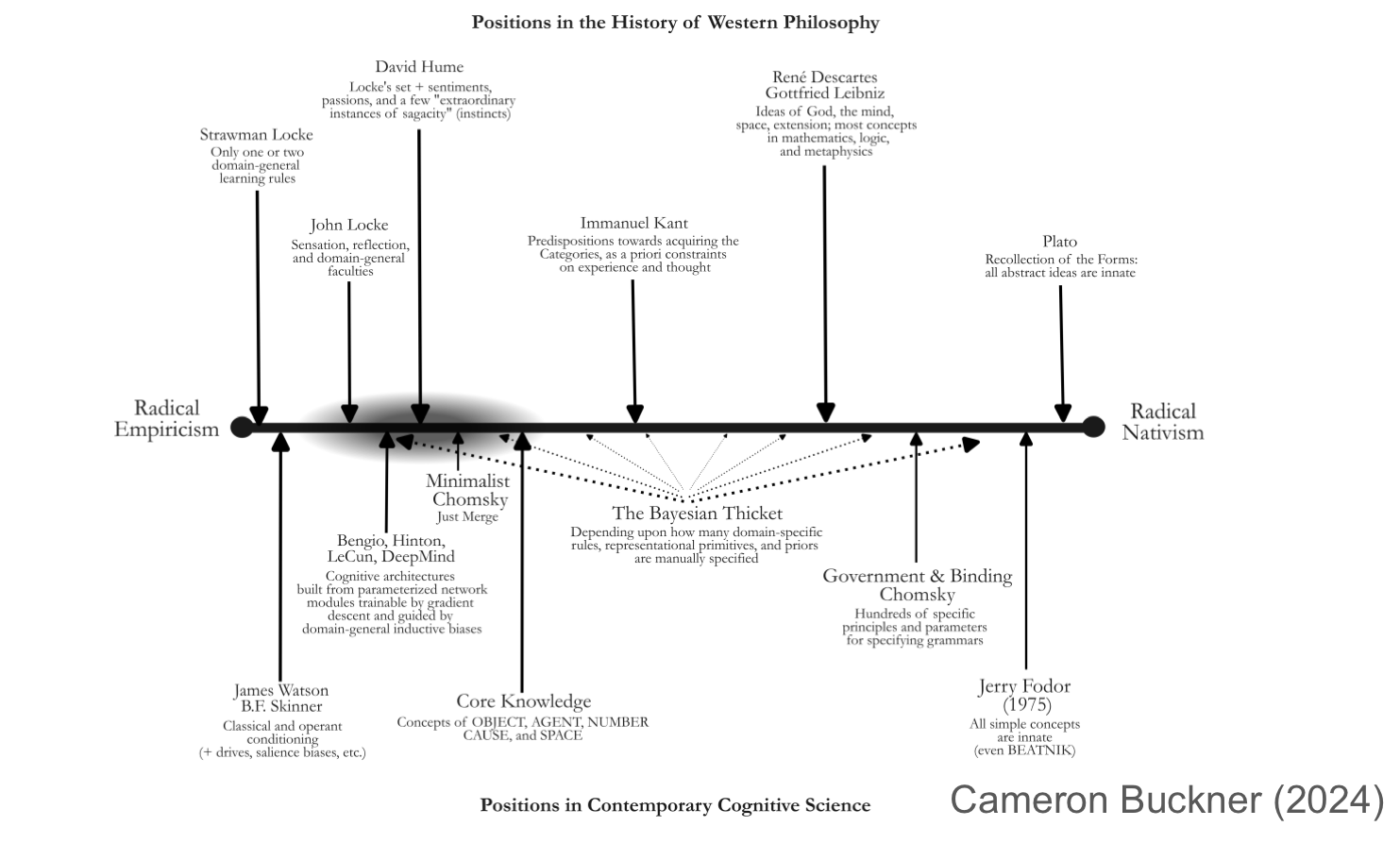Overview
 (Image from @2024bucknerDeep.)
(Image from @2024bucknerDeep.)
Today, the nativist-empiricist debate in cognitive science is a disagreement over which cognitive structures are innate, and which concepts are learned or acquired from experience: Nativism and empiricism are two different styles of learning-based explanation, after Laurence and Margolis.
Nativism and empiricism are related to Computationalist, connectionist, and rational research traditions in cognitive science by the following: computationalist theories depend on a notion of innateness, while connectionist theories, despite being technically neutral, take learning to be enabled by “updating” based on experiences alone. An approach that somewhat integrates both sides is to design artificial with innate psychological faculties that are capable of domain-general learning (see Domain-general modular architecture is the best hope for modeling rational cognition in AI, after Buckner.
Related notes: The nativism-empiricism continuum, after Buckner (2024)
The philosophical debate
Empiricism and nativism (or rationalism) are two opposing viewpoints on knowledge acquisition:
- Empiricism: “All knowledge comes from environmental input via perception”, e.g., Hume (see also: The human mind as a tabula rasa, after Aristotle);
- Rationalism: “There is knowledge in the mind that did not come from the senses”; includes coming to know via rational faculties (e.g., mathematical knowledge, reasoning from first principles, etc.), e.g., Descartes, Leibniz.
Many arguments for rational theories (e.g., Universal Grammar) echo Meno’s paradox.
The (classical) psychological debate
From @1998cowie:
Fodor’s nativist thinks that Mother Nature and the world do all the work in concept-acquisition, whereas the empiricist thinks that we have to do some work as well.
| Classical empricism | Fodorian nativism |
|---|---|
| Cause-concept relations are rational-causal, meaning that experiences cause concepts by “inductively supporting” semantic hypotheses. | Cause-concept relations are brute-causal, meaning the relation between concepts and triggering experiences are arbitrary outcomes of natural selection. |
| Beyond experience, concepts must be causally implicated by forming and testing hypotheses about their meaning. | Concepts can be acquired through experience alone: “Triggering of the sensorium is, normally, causally necessary and sufficient for the availability of all concepts” (Fodor, quoted in @1998cowie). |